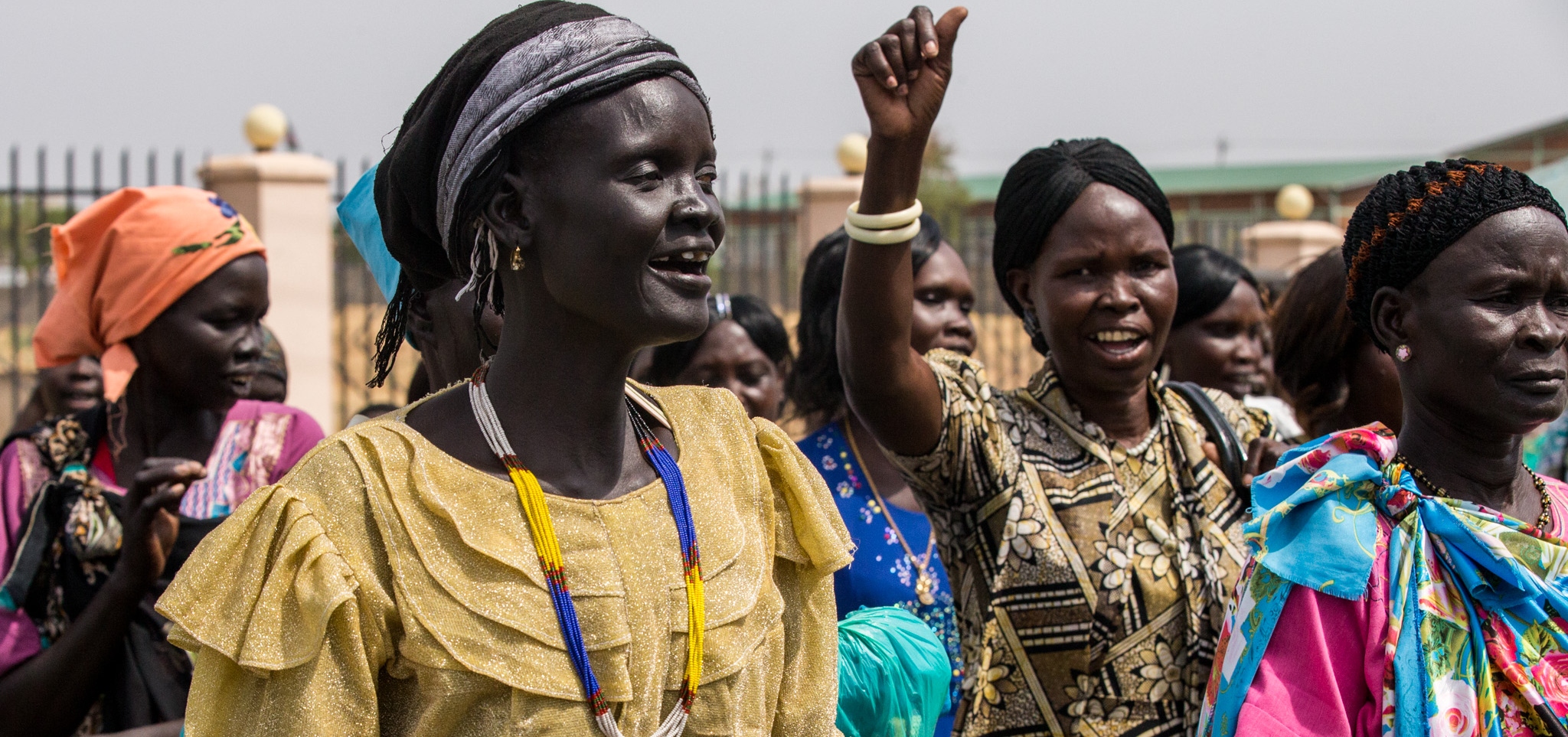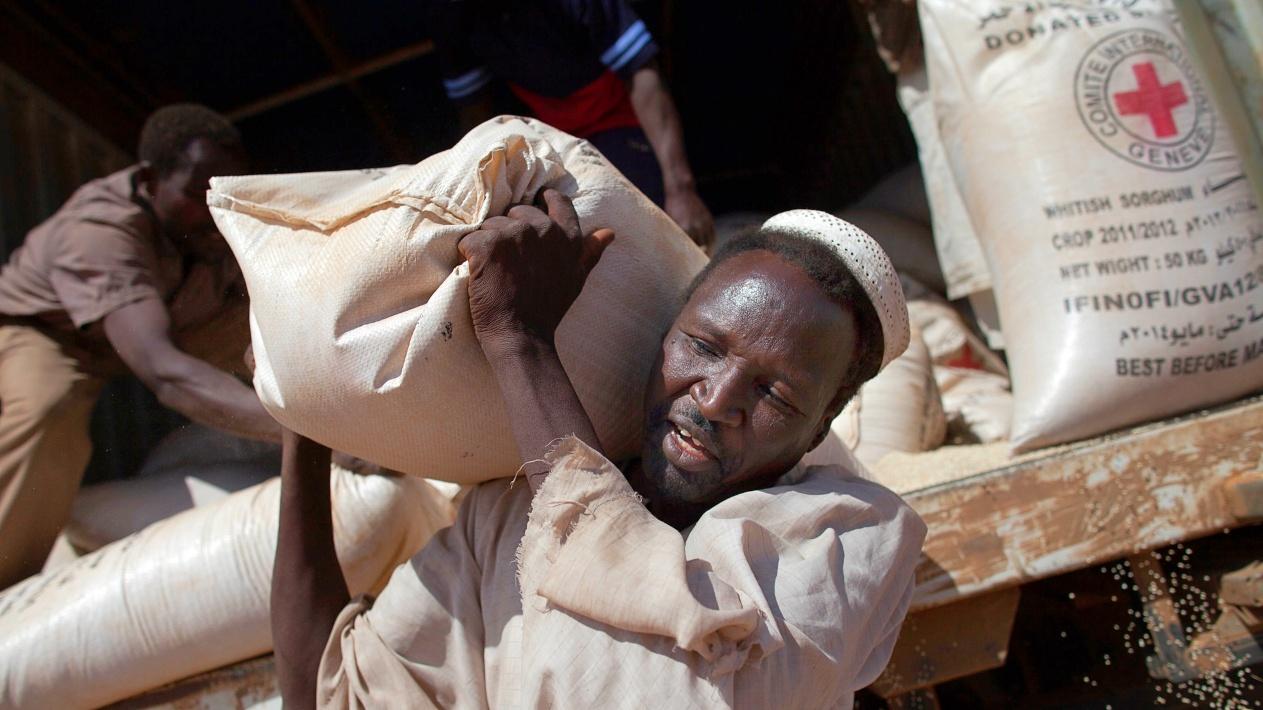In post-colonial Sudan, cotton was a major cash crop. Its production helped bankroll the nation’s first political party but a crash in cotton prices helped create a political and economic crisis that paved the way for military rule, writes Harry Cross.
The growth of private-sector cotton production in Sudan helped shape the country’s early post-colonial period. Its profits created new dynamics of wealth and power and were directly linked to the creation of early coalitions around which the country’s first political parties formed.
These vested interests had implications for Sudan’s early relations with its neighbours and when a trade dispute coincided with disruption in the global cotton markets it destabilised national politics and culminated in Sudan’s first military coup in 1958.
Sudan’s Cotton Economy
The 1920s in the Anglo-Egyptian Condominium of Sudan witnessed the creation of a vast state-led cotton enterprise irrigated by the Blue Nile southeast of Khartoum, alongside the parallel creation of a private cotton economy on the White Nile. Although private cotton production initially grew more gradually than the state-driven schemes, it exploded in importance after 1945 due to booming international demand. By 1958 (the year of the coup), the total area of private irrigated schemes almost matched those of public schemes.
Sudan’s King of Cotton during this period was Imam Abd al-Rahman al-Mahdi, a man who combined religious, corporate, and political prestige. Al-Mahdi was the son of Muhammad Ahmad, a religious scholar who had declared himself the Mahdi (‘redeemer’) of Islam in 1881, and who had led an armed uprising against the Egyptians and British in Sudan. Abd al-Rahman al-Mahdi later inherited the leadership of his father’s religious movement, the Ansar (‘followers’).
Whereas his father had fought the British, Abd al-Rahman al-Mahdi became drawn into the system of formal and informal relationships that constituted the Sudanese expression of ‘indirect rule.’ The Imam was a close collaborator of the British, and he was rewarded in 1926 with soft loans and a pump licence with which to develop irrigated agricultural estates. This established Sudan’s private cotton economy, which was dominated by Imam al-Mahdi and his Ansari brethren.
Politics in Sudan
Rising Anglo-Egyptian rivalry after 1945 played out in the partisan politics of Sudan, which at the time was co-administered by Britain and Egypt. In 1945, Abd al-Rahman al-Mahdi registered Sudan’s first political party, the National Umma Party (‘community of believers’). Closely allied to the British, the Umma called for independence for Sudan and opposed calls by the Egyptians for the ‘unity of the Nile Valley.’
In 1952, a pro-Egyptian party was established called the National Unionist Party (NUP). The NUP was a broad political coalition, ranging from secular nationalists who looked to Egypt as a political model in the fight against Britain, to wealthy merchant families who conducted Sudan’s overland trade with Egypt.
As result, Sudan’s party-political system became two opposing blocs: agricultural capitalists who exported to Britain, and whose businesses financed the ‘pro-British’ Umma Party; and the merchant capitalists who traded with Egypt, and who financed the ‘pro-Egyptian’ NUP.
Boom…
By 1953, the global post-war boom in cotton prices had begun to slow. However, several factors in the region led to a debt-fuelled expansion of Sudan’s cotton production.
The new NUP government, formed after the 1953 elections, had seen how private cotton investments had brought significant revenues to their political rivals, the Umma Party. Consequently, the Ministry of Finance began issuing loans to private Sudanese to invest in new agricultural schemes to expand ownership.
In Egypt, following the 1952 Free Officers’ Coup, the government began adopting increasingly radical political positions. This caused foreign capital, notably banks and merchant houses, to hedge their positions in Egypt by increasing investments in Sudan. Subsequently, cotton profits in Egypt were used to finance new production in Sudan. Finally, Sudan’s resident capitalist class were seeking profitable means to reinvest their surpluses and chose cotton. Large agricultural estates lent to smaller schemes, banks diversified from export financing towards capital lending, and merchant-capitalists opened subsidiaries in cotton production. All of this meant that lending to the cotton industry continued to rise despite external market conditions.
In December 1955, a cross-party motion in the Sudanese parliament declared the country’s independence from Britain and Egypt, which came into effect on 1 January 1956. Independence was quickly followed by a crisis in Sudan’s governing party, as conservative parliamentarians aligned with merchant families and Sudan’s old religious orders left the NUP to form the People’s Democratic Party (PDP). The PDP formed a new government with the agricultural capitalists of the Umma Party, and the rump NUP was cast into opposition.
…to Bust
Crisis struck Sudan’s cotton sector in 1958 when collapsing international demand led to stocks going unsold, while crop diseases wiped out the supply of numerous investors. That same year, Sudan’s relations with Egypt deteriorated, as the Umma Prime Minister, Abdallah Khalil, pressed for an increase in Sudan’s allocation of the Nile’s waters. This demand favoured the interests of Ansari cotton producers, who were invested in irrigated agricultural production. Egypt, meanwhile, wished to preserve its allocation of water to favour its own agricultural economy. The crisis came to a head as Egypt imposed an embargo on imports from Sudan, thus imperilling the business model of Sudan’s PDP-leaning merchant families.
With the price of cotton collapsing and trade with Egypt prohibited, the business interests of both wings of the Umma—PDP government faced crisis. In this context, the PDP and the NUP conspired against the Umma Party and began negotiating the creation of a ‘pro-Egyptian’ coalition that would reconcile with Cairo and regain access to the Egyptian market, to the detriment of Ansari cotton growers’ need for higher water quotas. Elite local and international opinion was alarmed at this prospect, lest Sudan join other Arab countries in being drawn into a pro-Egyptian Arab socialist alignment in the ‘Arab Cold War.’
Military Rule
It was in this context that the Supreme Commander of Sudan’s Armed Forces, Ibrahim Abbud, carried out a coup against the government and parliament. Abbud restored the national economy by cutting reserve prices for cotton, which revived export receipts while simultaneously making it impossible for private investors to recover costs. Abbud reconciled with Egypt by settling for a lower share of the Nile’s waters and secured commercial openness without political alignment.
The new military-developmentalist government tried to make Sudanese cotton more competitive by lowering production costs and using state coercion to break the power of militant labour in Sudan’s cotton fields and continued to pursue export-led development.
Cotton has continued to play an important role in Sudan’s economy, but the 1958 cotton crisis bankrupted the country’s first party system, quite literally, which set a precedent for an unstable dance of business and politics for decades to come.
Photo credit: Karen P used with permission CC BY-NC-ND 2.0





